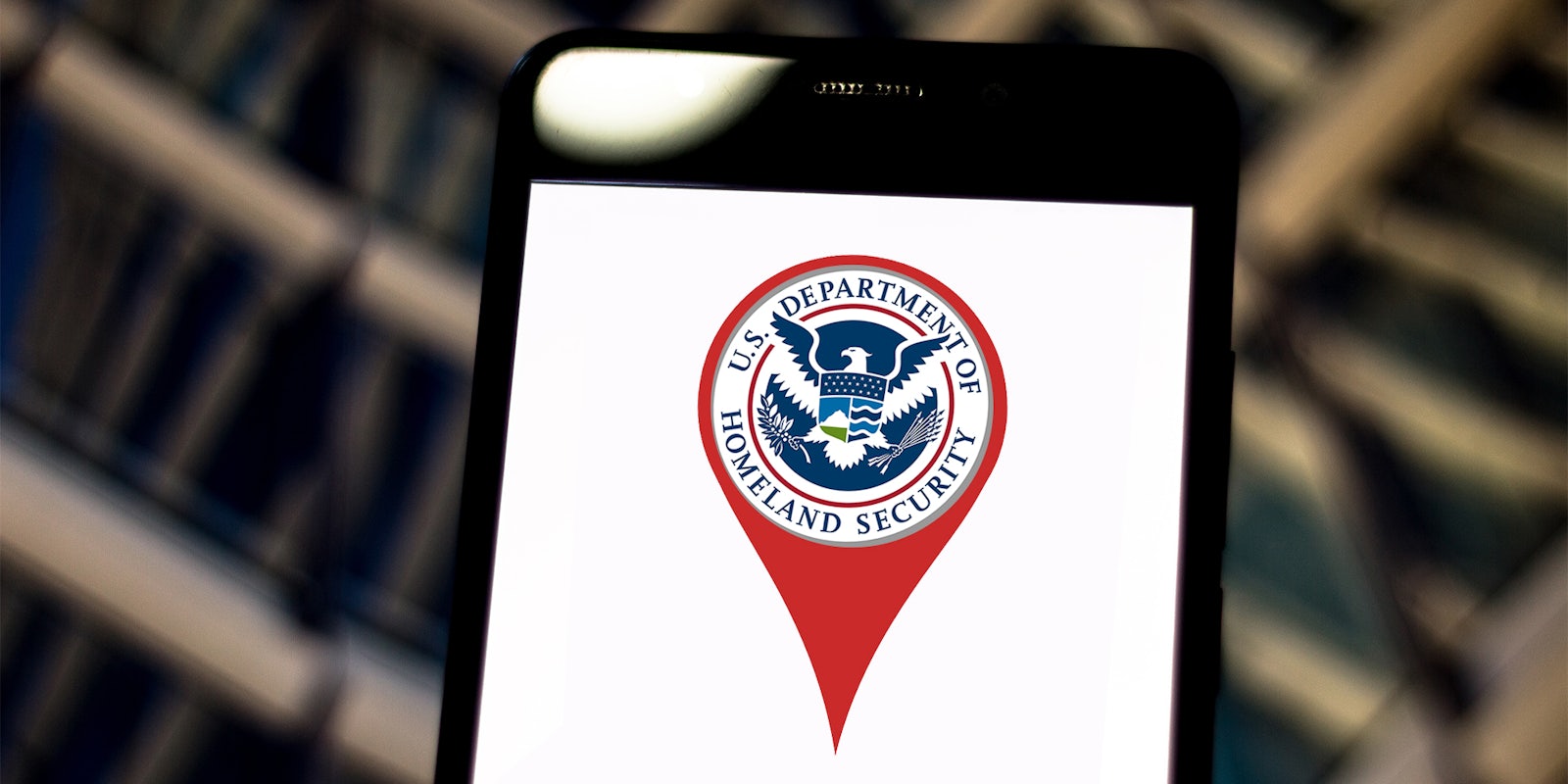The American Civil Liberties Union (ACLU) revealed on Monday that the Department of Homeland Security (DHS) accessed data on over 300,000 location points from mobile phones, revealing the stunning scope of warrantless surveillance by America’s largest domestic policing agency.
Politico first reported on the news of ACLU’s Freedom of Information Act (FOIA) request. The ACLU sued DHS for the documents back in 2020.
Customs & Border Protection (CBP), part of DHS, along with several other agencies, purchased the location data from brokers without a warrant, highlighting the routes government agencies can go to circumvent the Fourth Amendment in a digital age. The agencies were able to purchase data from millions of cell phones across America.
One of the companies that DHS purchased data from, Venntel, says it collects up to 15 billion data points a day, and that law enforcement can use this information to “identify devices observed at places of interest,” and “identify repeat visitors, frequented locations, pinpoint known associates, and discover pattern of life.”
The ACLU received over 6,000 pages of data from the FOIA request, ranging from 2017-2019. It revealed that in one three-day span, the agency collected over 100,000 location points, all in the Southwest.
The Wall Street Journal first revealed that DHS, under then President Donald Trump, was purchasing data location from brokers. Due to the commercialized nature of the location data business, government agencies can often circumvent the need for a warrant and purchase it instead. Although location data sold by brokers is considered “anonymized,” collecting enough data points around different locations can reveal people’s identities and daily movements
The Supreme Court ruled in 2018 that police typically need a warrant to collect location data and that a person handing over their location data to a third-party, like a phone company, did not mean users waived their Fourth Amendment protection against unreasonable search and seizures.
According to the documents the ACLU obtained, some in DHS were aware of the concerns over obtaining location data from brokers, including halting the program with Venntel for a period of time over privacy concerns.
However, per Politico, both CBP and Immigration and Customs Enforcement have contracts with Venntel that run through 2023.


